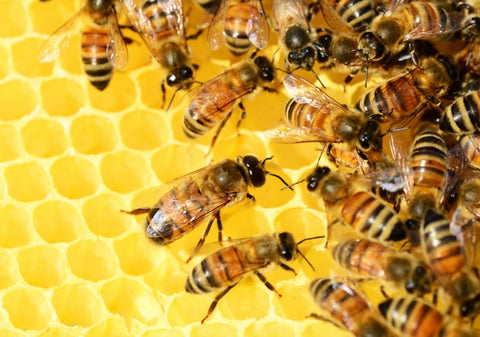The simplest definition of sustainable living is living contently without gobbling up Earth’s natural resources. The lifestyle of a bee is exemplary of a sustainable lifestyle. This is one of the reasons honeybees are a source of fascination to multitudes.
Before we ponder over why honeybees are so irresistible and fascinate many all over the world, let’s talk a little about honeybees. Honeybees are the sole surviving group of bees belonging to the Apini tribes. They attract attention because they are a mysterious and independent Apis genus. Their independent nature is only the tip of the ice berg. They live only with the resources they gather and store themselves and they do so not for themselves but for the future generation of bees. They live in groups of thousands and behave as a single organism. They can do so because of their level of co-operation and communication. Ego is not their feature, and for them each individual matters. There is an endless list of lessons that humans can learn from the ways of honeybees.
Honeybees dwell in natural and domesticated environments. Typically where there is abundant flora and climate is tropical and temperate. Woodlands, gardens, meadows and orchards are a few regions where you can find honeybees. In these regions, you’ll find the bees sheltering themselves from predators inside tree cavities. Each colony is made of one hundred thousand bees. These bees are classified into three classes: workers, drones and one queen bee.
The drones are those bees that only eat and fly around looking for opportunities to mate. The queen bee is the most dominant reproductive female and is selected by the worker bees. She is considered as the mother of all bees.
The workers, like the name suggests, are the bees that do most of the work. They take care of the queen bee and feed her so she is sexually mature, collect nectar from flowers, develop the larvae and make the beeswax which is used to build their honeycombs. The worker bees also work as natural pollinators. They collect pollen from flowers and provide pollination services by spreading pollen as they flitter around. If bees don’t act as natural pollinators, we wouldn’t be able to munch on apples, berries, coconut, strawberries etc. Basically our grocery aisles would be empty. This is just one of the many necessities of bees.
In our next post we’ll give you a plenary post about their numerous other benefits.
Au revoir until next time!







